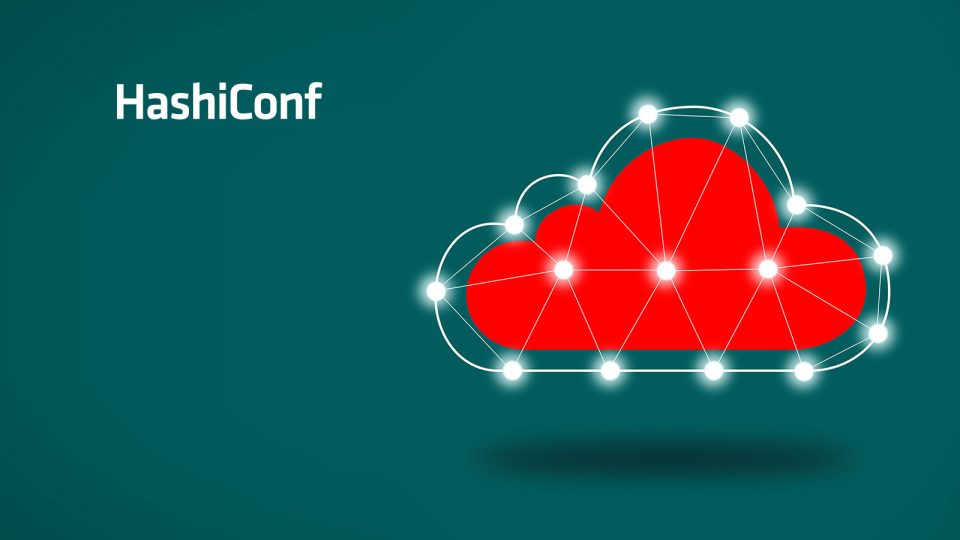New releases span infrastructure and security with capabilities for end-to-end automation, generative AI, validation and testing, and cost optimization.
HashiCorp, a leading provider of multi-cloud infrastructure automation software, announced at HashiConf, its flagship user conference, product updates across the HashiCorp Cloud Platform (HCP). Announcements are focused on enhancements to workflow automation for developers and infrastructure and security lifecycle management for cloud platform teams. Key announcements include AI-generated tests for HashiCorp Terraform Cloud, the debut of HCP Vault Radar, HCP Vault Secrets, HCP Consul Central, and HCP Waypoint templates.
For organizations adopting the cloud, platform teams have emerged to help standardize the interface between developers and the cloud, minimize manual tasks with automation and AI, and enable developers with workflow integrations needed to quickly and securely deploy applications.
Infrastructure workflow automation and lifecycle management
HashiCorp Terraform is the de facto standard for infrastructure as code. Terraform has been downloaded by the community hundreds of millions of times, has thousands of enterprise customers, hundreds of thousands of users on Terraform Cloud, and hundreds of partners and integrations.
HashiCorp released multiple new capabilities in its infrastructure portfolio for HashiCorp Terraform and Packer, which handle infrastructure as code provisioning and management.
- Terraform native test framework and Terraform Cloud test-integrated module publishing: Automates unit and integration testing of Terraform code; provides an integrated workflow to publish modules to the private registry.
- Terraform Cloud AI-generated tests: Large language models (LLMs) generate tests for a module on behalf of the user, allowing module authors to start writing tests quickly.
- Terraform stacks*: Major enhancement to the Terraform execution engine that enables complex deployments across multiple environments across modular infrastructure components.
- Terraform enhanced editor validation: Automatically validates Terraform code by developers’ code sources, including copying/pasting from AI tooling or using IDE-integrated tools like GitHub Copilot or Amazon CodeWhisperer.
- Terraform Cloud ephemeral workspaces: Helps manage the cleanup of unused resources accumulated over time to optimize cloud costs. Also available in Terraform Enterprise.
- HCP Packer run task: Quickly check image compliance with precise results and remediation guidance enhanced for Terraform Cloud.
- HCP Packer webhooks: Easily embed Packer into your existing automation pipelines and enforce additional policy and compliance checks.
Security workflow automation and lifecycle management
HashiCorp also made multiple announcements in its security portfolio for HashiCorp Vault, Boundary, and Consul, which provide identity-based controls for security across secrets management, secure remote access, and service networking.
- HCP Vault Secrets: A SaaS offering for identity-based secrets management designed for organizations that want to quickly get started managing their secrets with minimal overhead and cost, now generally available.
- HCP Vault Secrets sync: Centralizes secrets management while allowing developers to consume secrets within the applications they use every day. Also available in Vault Enterprise.
- HCP Vault Radar: Scan, identify, and remediate secrets inadvertently stored in source code, development environments, internal wikis, chat services, and ticketing systems. In private preview with select customers.
- Boundary Enhanced UX: Streamline target connection workflow by working directly from Boundary desktop terminal when establishing a new SSH session without navigating to other CLI-based tools.
- HCP Consul locality-aware routing: Automatic traffic routing for services to local instances within the same availability zone to minimize latency and networking costs while boosting efficiency.
- HCP Consul Central: Provide global visibility and management of clusters and services, including multi-cluster deployment, server health monitoring, service-level observability, cluster peering, and a global API and catalog to enable self-service portals.
Read More: Top 15 AWS Cloud Migration Partners You Can Rely on for Total Digital Transformation
Paving the way for internal developer platforms
Many developers use ad hoc tooling without proper integration to connect them with standardized infrastructure and security workflows or are slowed down by the burden of learning cloud-specific tools, SDKs, and APIs.
On stage at HashiConf, HashiCorp will demonstrate how the future of developer workflows integrates with Terraform Cloud and HCP Vault using HCP Waypoint, providing a way for platform teams to define a “golden path” as a template for developers to deploy their applications, while abstracting the job-specific details of provisioning and secrets management.
“As I speak with organizations across the globe, I continue to hear that their biggest challenge is making the cloud accessible to their developers in a secure, cost-effective, and simple way,” said Armon Dadgar, Co-Founder and CTO, HashiCorp. “Today’s announcements are about offering developer-driven workflows that are well integrated with the HashiCorp Cloud Platform. Our goal is to enable developers by removing complexity, while enabling platform teams to put controls in place to manage risk and cost. We are helping teams deliver secure, self-service infrastructure for those developers through an integrated platform.”
CIO INFLUENCE News: CoreWeave Expands Data Center Footprint with Two New Flexential Colocation Facilities
[To share your insights with us, please write to sghosh@martechseries.com]


